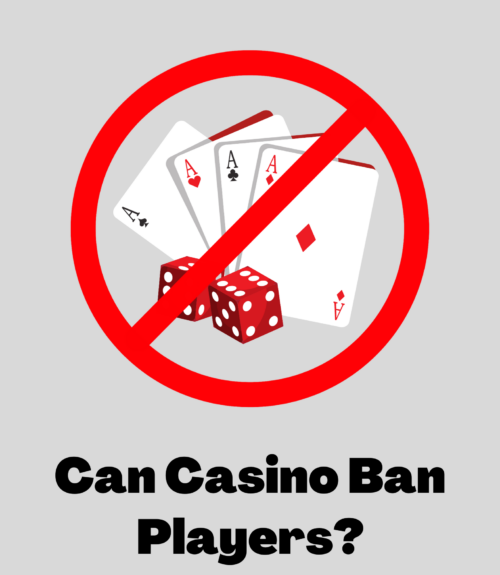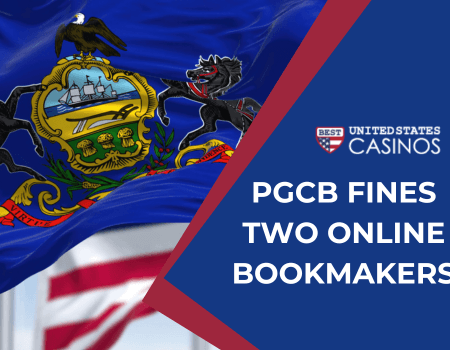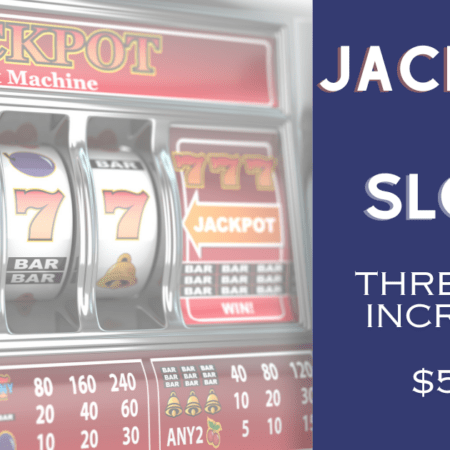Questioning whether casinos possess the authority to ban players? Delve into the legalities and nuances of player bans. Understanding the rights and regulations surrounding “Can Casino Ban Players” can provide crucial insights for both players and casinos alike. In this guide, we’ll explore the factors involved, the legal perspectives, and what rights you, as a player, possess in such scenarios. Stay informed to ensure a fair and transparent gaming experience within the casino industry. Let’s shed light on whether and how Casino Ban Players is within their rights.

Understanding Casino Policies on Player Bans
Casinos, as establishments facilitating gambling activities, enforce specific policies to ensure a fair and secure gaming environment. One crucial aspect of this governance involves determining when and why a player might be banned from the premises or their online platforms.
Reasons for Player Bans
Casinos implement bans primarily to maintain the integrity of their operations and protect the interests of both players and the establishment. Common reasons for player bans include fraudulent activities, cheating, violation of casino rules, disruptive behavior, harassment, or engaging in activities deemed detrimental to the overall gaming experience.
Casino Discretion and Policies
Each casino has its own set of rules and guidelines regarding player bans. These policies are often outlined in the casino’s terms and conditions, detailing the conduct expected from players. The casino’s management has the discretion to enforce these rules and decide on the appropriate action, including temporary suspension or permanent banning.
Duration and Severity of Bans
Player bans can vary in severity and duration, depending on the gravity of the offense. Temporary bans may last for a specific period, such as a few days, weeks, or months. In contrast, more serious offenses may result in a permanent ban, prohibiting the player from ever engaging with the casino again.
Appeals and Reviews
In the interest of fairness, some casinos offer an appeals process for banned players. This allows individuals to contest the ban by presenting their case to the casino management. The casino will conduct a review, considering the circumstances and evidence provided, and may choose to uphold or lift the ban based on the findings.
Communication of Bans
When a player is banned, the casino needs to communicate the reasons clearly. This communication helps the player understand the cause of their ban and serves as a transparency measure. Casinos often outline the conditions for potential reinstatement, providing a pathway for the player to address the issues that led to the ban.
Legal Aspects of Casino Player Bans
Player bans within casinos raise various legal considerations, impacting both the players and the casinos themselves. It’s essential to explore these legal aspects to understand the rights and obligations associated with this practice.
Compliance with Regulations
Casinos must comply with local, state, and federal laws and regulations pertaining to player bans. Regulatory bodies often outline guidelines on how bans should be administered, ensuring they are fair, just, and in accordance with legal standards.
Establishment of Policies
Casinos develop their ban policies in alignment with legal frameworks. These policies define the circumstances under which a player can be banned and the procedures that must be followed. Adhering to these policies helps ensure legality and fairness in the banning process.
Protection of Casino Interests:
Player bans serve to protect the casino’s interests, including maintaining a safe and secure gaming environment, preventing fraud or illegal activities, and upholding the integrity of the games offered. Legal guidelines support the casino’s right to act in cases that threaten these interests.
Player Rights and Due Process
Players have legal rights, and due process must be followed when imposing bans. This includes providing clear reasons for the ban, offering an appeals process, and ensuring that bans are not discriminatory or based on unjust grounds. Legal frameworks safeguard the rights of players during these procedures.
Liability and Responsibility
Understanding the legal liability associated with player bans is crucial. Casinos need to be aware of the potential legal ramifications of their actions and ensure that bans are administered responsibly, within the boundaries of the law, to avoid legal disputes or liabilities.
Privacy and Data Protection
Player bans involve handling sensitive personal data. Compliance with data protection laws is imperative to safeguard players’ privacy rights during the banning process. Casinos must adhere to privacy regulations while implementing and enforcing bans.
Ensuring a Fair Gaming Experience
In the realm of gambling, ensuring fairness is a cornerstone for both players and casinos. A level playing field fosters trust and engagement, vital for a sustainable and reputable gaming industry. Here, we delve into the strategies employed to guarantee a fair gaming experience.
Regulatory Oversight
Central to fairness is stringent regulatory oversight. Government bodies and independent commissions monitor casinos to ensure compliance with established rules. Regulations are in place to prevent fraudulent activities, manipulation of odds, and other unfair practices.
Random Number Generators (RNGs)
Modern casinos utilize RNGs to ensure the unpredictability and fairness of games. These algorithms generate random outcomes, essential for games like slots and card games, assuring that results are not predetermined or manipulated.
Transparent Payouts
Casinos committed to fairness maintain transparency in their payout structures. Clear information about odds, house edge, and potential winnings is provided to players, empowering them to make informed choices.
Regular Audits
Reputed casinos undergo regular audits by independent auditing firms. These audits verify the accuracy and fairness of the casino’s operations, assuring players that the games are conducted in a fair and unbiased manner.
Responsible Gaming Measures
Promoting responsible gaming is integral to fairness. Casinos provide tools such as self-exclusion options, deposit limits, and cooling-off periods to empower players to manage their gambling activities responsibly.
Dispute Resolution Mechanisms
Establishing effective dispute-resolution mechanisms is vital. Casinos offer channels for players to address concerns and complaints, ensuring that disputes are handled fairly and in a timely manner.
Educational Resources
Educational resources on gambling are often provided by casinos, offering information on odds, strategies, and responsible gaming. This helps players make informed decisions and fosters a culture of fair play.
Communication and Transparency
In the realm of fair gaming, effective communication and transparency are linchpins. Casinos must clearly articulate their rules and policies, ensuring players have a comprehensive understanding. Timely and clear notifications regarding any actions taken, be it warnings or bans, uphold a sense of transparency and respect. Providing accessible channels for feedback and addressing concerns cultivates trust, fostering a culture of open dialogue between the players and the casino. Ultimately, a commitment to honest marketing practices and financial transparency solidifies the foundation for a fair and reputable gaming experience.

I hold the prestigious role of Head of Content at Best United States Casinos, where I lead the charge in content creation and strategy. Fueled by my profound passion for casinos and backed by years of industry experience, I am a powerhouse of knowledge. My dedication shines through in my mission to craft captivating and informative content that resonates with casino enthusiasts across the globe. Whether it’s uncovering the latest trends or diving into the nuances of gameplay, I am committed to delivering top-notch content that keeps audiences engaged and informed.








